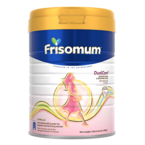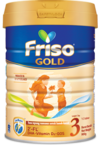Confinement Centre Pros and Cons for Mums
Confinement centres are an increasingly popular option for mums due to.... read more

The early signs and symptoms of pregnancy can manifest differently for every expecting mum, so how do you know if you’re pregnant? Our guide aims to provide you with information about why these pregnancy symptoms show up the way they do,as well as practical ways on how to deal with them.
Morning sickness and nausea are some of the biggest and most obvious pregnancy symptoms. The reason morning sickness happens is due to the amount of hormones made from our body, but it usually goes away after 11–14 weeks. It is best to eat smaller meal portions frequently and avoid oily and fatty food.

Pregnant mums often face emotional, physical, and mental changes, especially during the first trimester. Resting is essential for pregnant mums. Try taking quick power naps to feel fresh. Massages and warm baths before bed also help ease tiredness. To boost energy levels, you could consume nutritional formulas such as Frisomum® Gold that is high in magnesium and B vitamins (thiamine, niacin and B6), which are useful minerals that help reduce fatigue.

Constipation during pregnancy often happens due to the hormone progesterone, which relaxes muscles and slows down digestion. Eat more leafy greens, raw fruits and vegetables, and whole grains. Try drinking more prune juices and avoid using over-the-counter laxatives unless you have checked with your doctor.

Some women’s pregnancy symptoms include painful calf and foot contractions. They are common, especially during the second and third trimesters. Practise simple calf muscle stretching exercises before bed to ease the pain. But make sure you have consulted your healthcare provider before you embark on any exercise regime.
While frequent urination may not be the biggest symptom of pregnancy, it can be one of the most annoying. This typically happens a lot during the first and last trimester of most women’s pregnancy, but it is advisable to not limit your intake of fluids. Keeping yourself hydrated during pregnancy is important. Unless you experience a burning sensation or pain during urination, it is a common pregnancy symptom. Leaning forward during urination also helps empty your bladder better.
Not all moms-to-be experience the same symptoms when pregnant, and the biggest pregnancy symptoms could vary in women.. In fact, you might not necessarily experience the same early or late pregnancy symptoms in your subsequent pregnancies. Early pregnancy signs, like absence of menstruation and weight gain, are common to all pregnancies.
Some women may experience early signs and symptoms within the first weeks of the first trimester, while others may develop symptoms later. Signs and symptoms of early pregnancy can also be similar to symptoms experienced prior to routine pre-menstrual discomforts. Therefore, some women might not recognise their pregnancy signs and symptoms. Pregnancy is an individual experience, with its own positives and challenges, so give yourself time and grace as you learn how to deal with your pregnancy symptoms and figure out what works for you. Check out our pregnancy guide for more info on what to expect during week 1 of pregnancy, how to prepare for it and identify the symptoms.
Some women feel pregnant even before they miss their periods, but women’s early signs and symptoms of pregnancy typically include nausea, sore breasts and fatigue — all of which may also be symptoms of Premenstrual Syndrome (PMS). For the most accurate results, take the test a week after you’ve missed a period. Some doctors opine that it’s best to take the test in the morning, when urine is most concentrated. If you don’t want to wait that long, a blood test at your doctor’s office can provide results sooner than a urine test.
Depending on when you’re taking it, there might be some benefit in taking one test and then a second one a few days later. Then, visit your doctor to put any uncertainty at ease. If your period is irregular, try downloading a period tracker app so you can keep track of your cycle each month. This way there’ll be no guesswork and you know when to expect your period.
However, even if you aren’t sure that you’re expecting yet, you can always kickstart the process by nourishing your body in preparation for the exciting news. If you’re uncertain about where to start, why not check out our article “What Healthy Foods to Eat During Pregnancy” to find out more!
During this crucial period, ensuring your body gets the right nutrients for your pregnancy journey ahead is key. Maternal milk, like Frisomum® Gold, is tailored to meet the specific needs of expecting mothers and their future children, providing a balanced nutritional boost safely. Our unique DualCare+™ formula caters to both mum and child, offering essential nutrients essential for this stage. Frisomum® Gold delivers vital elements to support you through this significant journey such as:
Vitamin D - Vitamin D is necessary for the absorption and utilisation of calcium and phosphorus1.
Calcium - Helps in the normal growth and development of bones and teeth2.
Vitamin B12 - Needed for red blood cell production and the healthy functioning of the nervous system3.
Folic Acid - Folic acid is essential for growth and division of cells. Folate plays a role in the formation of red blood cells. Folate helps to maintain the growth and development of the foetus4.
Iodine - Essential for the formation of thyroid hormones, which supports brain development5.
Low glycaemic index - The glycaemic index (GI) is a rating system for foods containing carbohydrates. It shows how quickly food affects your blood sugar (glucose) level when eaten on its own. The low glycaemic index (GI) could help the mother avoid being overweight during pregnancy. Check out our article “Why A Low GI Diet Is Beneficial During Pregnancy” for more insights on how your glycaemic index (GI) affects your pregnancy,
When you’re deciding on which pregnancy milk powder you should choose to supplement your diet with throughout your pregnancy journey, it’s important to also consider the origins of the milk, how it was manufactured and processed, its nutrient content as well as which one helps you control weight gain during pregnancy. Frisomum® Gold preserves the natural nutrients of the milk to give you what you need in your pregnancy journey. Now that you are aware of the importance of maternal milk/susu, check out what Frisomum® Gold has to offer now!


